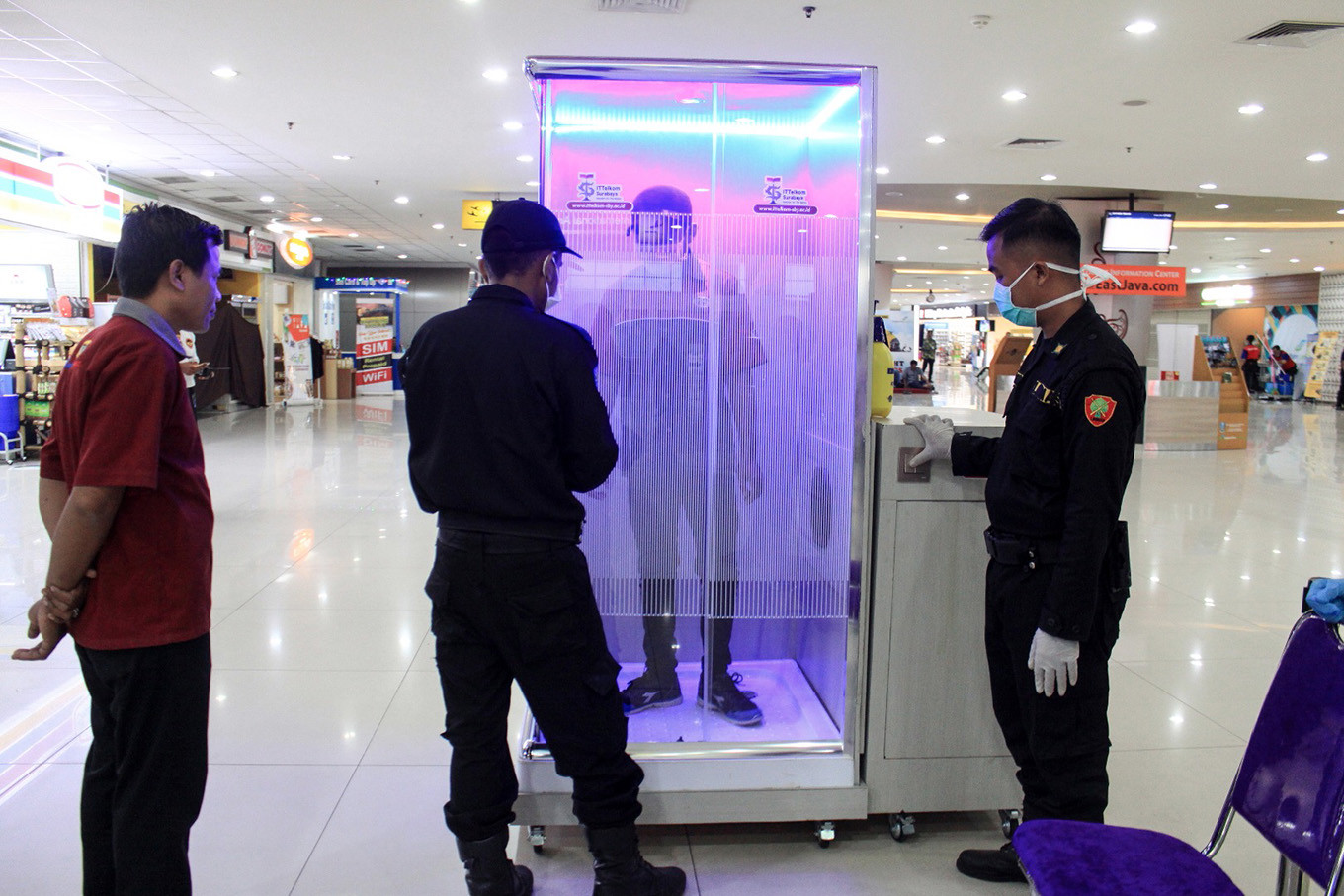Popular Reads
Top Results
Can't find what you're looking for?
View all search resultsPopular Reads
Top Results
Can't find what you're looking for?
View all search resultsPassenger surge at AP I airports continues as COVID-19 test policy relaxed
AP I recorded more than 227,000 passengers in the first seven days of July, a huge increase from 76,000 passengers in the entire month of May.
Change text size
Gift Premium Articles
to Anyone
S
tate-owned airport operator Angkasa Pura I (AP I) recorded an increase in passenger numbers in early July after the government extended the expiry date for passengers’ rapid and polymerase chain reaction (PCR) test results.
AP I president director Faik Fahmi said on Wednesday the decision to extend the validity period for COVID-19 test results had made it easier to travel, consequently boosting flight demand and traffic — a trend seen since large-scale social restrictions (PSBB) were relaxed in June.
The national COVID-19 task force issued on June 26 Circular Letter No.9/2020, which extends the validity period for rapid test results that are required to fly from three days to two weeks, and PCR test results from seven days to two weeks.
“Passengers have more time to prepare and plan for trips because of the new regulation. In total, we recorded 23,102 flights between April 25 and July 6 at our 15 airports,” he said in a statement.
AP I recorded more than 227,000 passengers in the first seven days of July, a huge increase from around 222,000 passengers during the first half of June and 76,000 passengers in the entire month of May.
AP I manages 13 airports in central and eastern Indonesia, including Kulonprogo airport in Yogyakarta, as well as other airports in Semarang in Central Java and Banjarmasin in South Kalimantan and Bali.
Surabaya’s Juanda Airport was the busiest airport in the first week of July with 723 flights, followed by Sultan Hasanuddin Airport in Makassar and Sultan Aji Muhammad Sulaiman Sepinggan Airport in Balikpapan.
The PSBB measures have severely weakened demand for air travel. According to Statistics Indonesia (BPS), the number of domestic air passengers fell 98.34 percent year-on-year (yoy) in May to around 90,000, while international air passenger numbers fell 99.18 percent yoy.
To spur the recovery of the aviation industry, another state-owned operator, Angkasa Pura II (AP II), plans to increase the number of available flight slots and normalize its operational hours in July.
The airport operator has set a target to make 30 percent of flight slots available at its 19 airports across the country, from the previous 10 to 20 percent made available during the COVID-19 outbreak.
“Starting from July, we will focus on the recovery of aviation traffic to support economic activities in Indonesia,” AP II president director Muhammad Awaluddin in an official statement on July 4.










